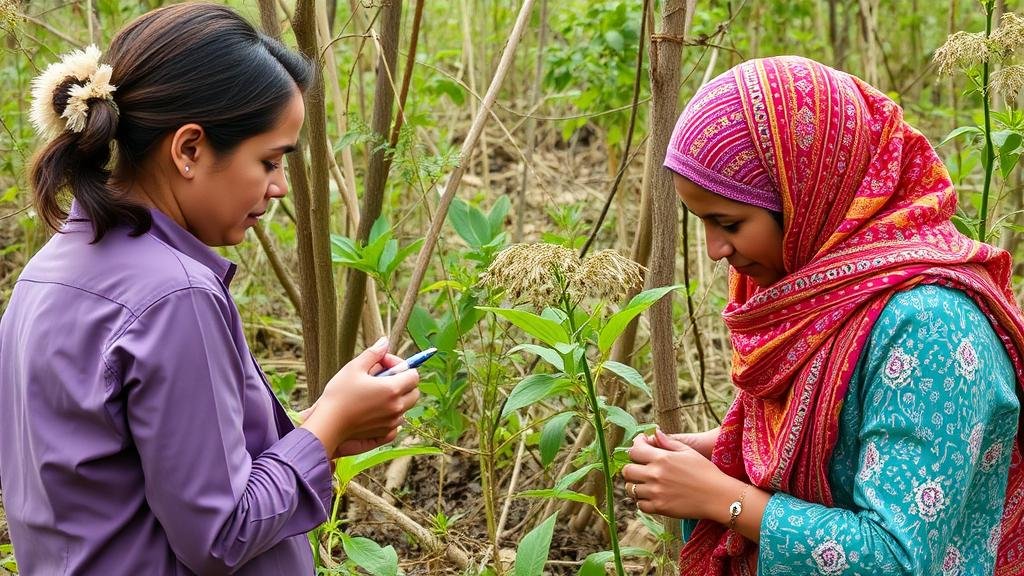Ethical considerations in promoting discoveries without disrupting local environments or communities.
Ethical Considerations in Promoting Discoveries Without Disrupting Local Environments or Communities
In an age where rapid advancement in technology and science can lead to groundbreaking discoveries, the ethical implications of promoting these findings have never been more prominent. The challenge lies in ensuring that such promotions do not disrupt local environments or communities, particularly those that could be adversely affected by external interventions. This article explores the ethical considerations involved in promoting discoveries, the importance of sustainable practices, and strategies to balance innovation with environmental and community welfare.
The Importance of Ethical Responsibility
Ethical responsibility in promoting discoveries is crucial, especially when considering the potential impacts on marginalized communities and fragile ecosystems. For example, in 2010, the Deepwater Horizon oil spill highlighted the environmental consequences of technological advancements in oil drilling, underscoring the need for responsible practices. Ethical responsibility involves understanding the socio-cultural dynamics of a region and engaging with local stakeholders before unveiling new technologies or methods.
Understanding Local Contexts
One of the primary ethical considerations is a comprehensive understanding of local contexts. This includes historical, cultural, and social dimensions that shape community responses to external innovations. For example, in 2015, UNESCO recognized the cultural heritage of the Amazon rainforest, emphasizing the importance of considering indigenous knowledge in conservation efforts.
- Historical context: Understanding the community’s past interactions with technology and the environment
- Cultural significance: Respecting traditions and practices that may be disrupted by new discoveries
The Role of Stakeholder Engagement
Engagement with local communities is not just a good practice; it is a ethical necessity. Collaborating with stakeholders allows for the inclusion of diverse perspectives, which can lead to better outcomes. For example, the World Wildlife Fund (WWF) engages local communities in conservation projects by involving them in decision-making processes. This participatory approach not only helps in promoting projects effectively but also ensures that local needs and concerns are addressed.
Ethical Frameworks and Guidelines
The establishment of ethical frameworks and guidelines can aid researchers and organizations in navigating the complex terrain of promoting discoveries. Belmont Report, formulated in 1979, exemplifies this approach in research ethics, highlighting respect for persons, beneficence, and justice. Applying similar principles to the promotion of discoveries could involve:
- Assessing potential risks and benefits to local environments and communities
- Ensuring equitable access to the benefits of new discoveries
Case Studies: Successful Ethical Promotion
Examining successful case studies can reveal best practices in ethical promotion. The introduction of solar energy solutions in rural India demonstrates ethical responsibility and environmental sustainability. Local solar cooperatives, such as those in Bihar, not only provide clean energy but also empower local economies. By promoting such initiatives with care and consideration for the communities involved, organizations minimize disruption while creating lasting benefits.
Another case is the conservation of sea turtles in Costa Rica’s Nicoya Peninsula. Conservation efforts not only educated the local population about sustainable fishing practices but also involved them in monitoring turtle populations, blending ecological promotion with local engagement.
Measuring Impact: Quantitative and Qualitative Assessments
To ensure that discoveries are promoted ethically, measuring their impact on local environments and communities is vital. Quantitative assessments, such as economic benefits or environmental changes, can be paired with qualitative evaluations, including community satisfaction and cultural preservation. For example, studies have shown that community involvement in ecotourism projects can lead to increased income and improved conservation outcomes. Research from the Ecotourism Society reveals that regions with stakeholder involvement have seen a more than 30% increase in local incomes.
Actionable Takeaways
As scientific and technological advancements continue to reshape our understanding of the world, ethical considerations in their promotion must be prioritized. Here are actionable takeaways for researchers and organizations:
- Engage with local communities early in the discovery process to understand their needs and concerns.
- Develop ethical frameworks that guide the responsible promotion of discoveries.
- Measure both the quantitative and qualitative impacts of promotions on local environments and communities.
- Adapt strategies based on feedback and results from the community to ensure ongoing alignment with their goals.
To wrap up, promoting discoveries in a manner that respects local environments and communities is not only ethical but essential for sustainable progress. By integrating ethical responsibility, stakeholder engagement, and impact assessments, we can ensure that the benefits of innovation reach everyone while preserving the delicate balance of local ecosystems and cultures.



